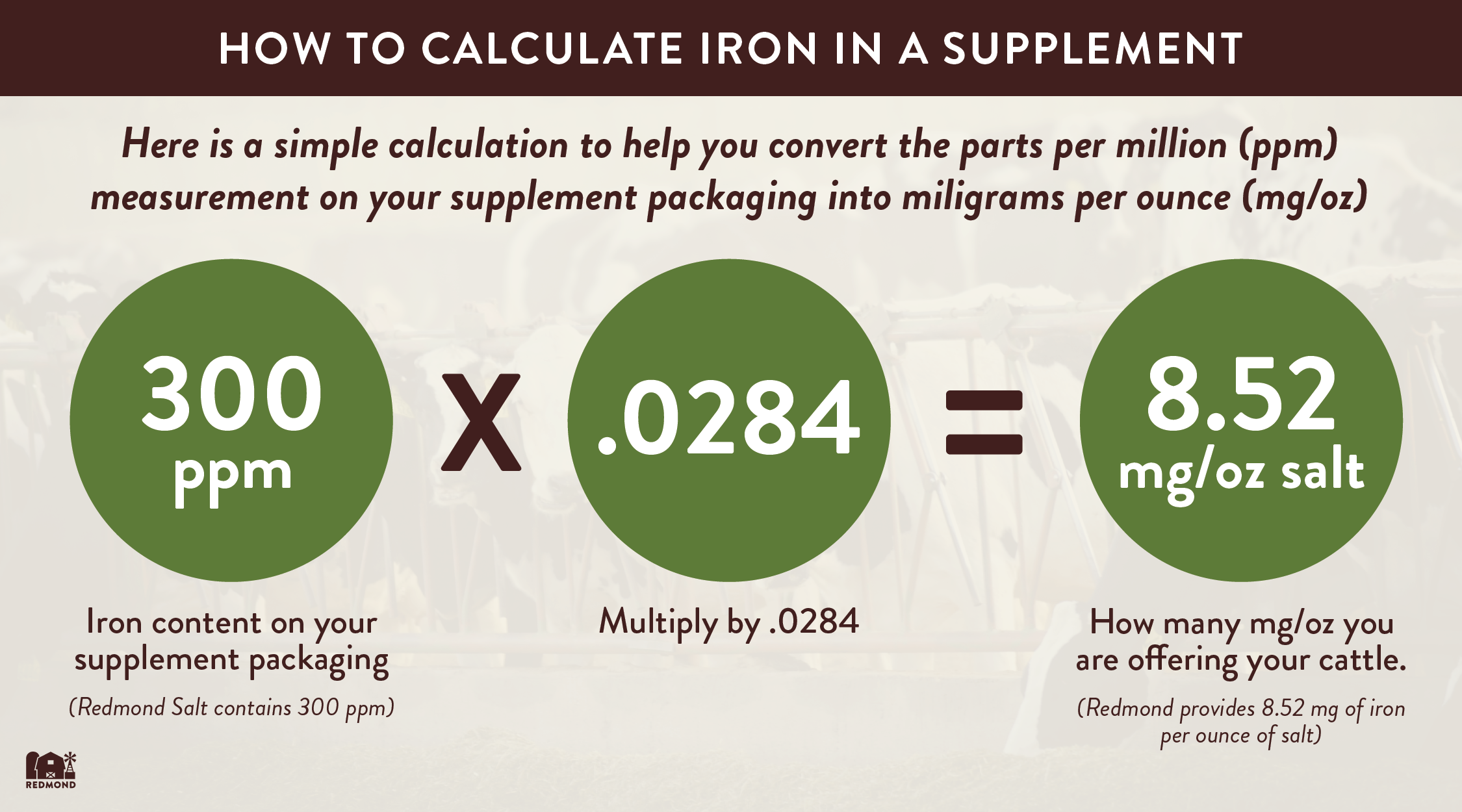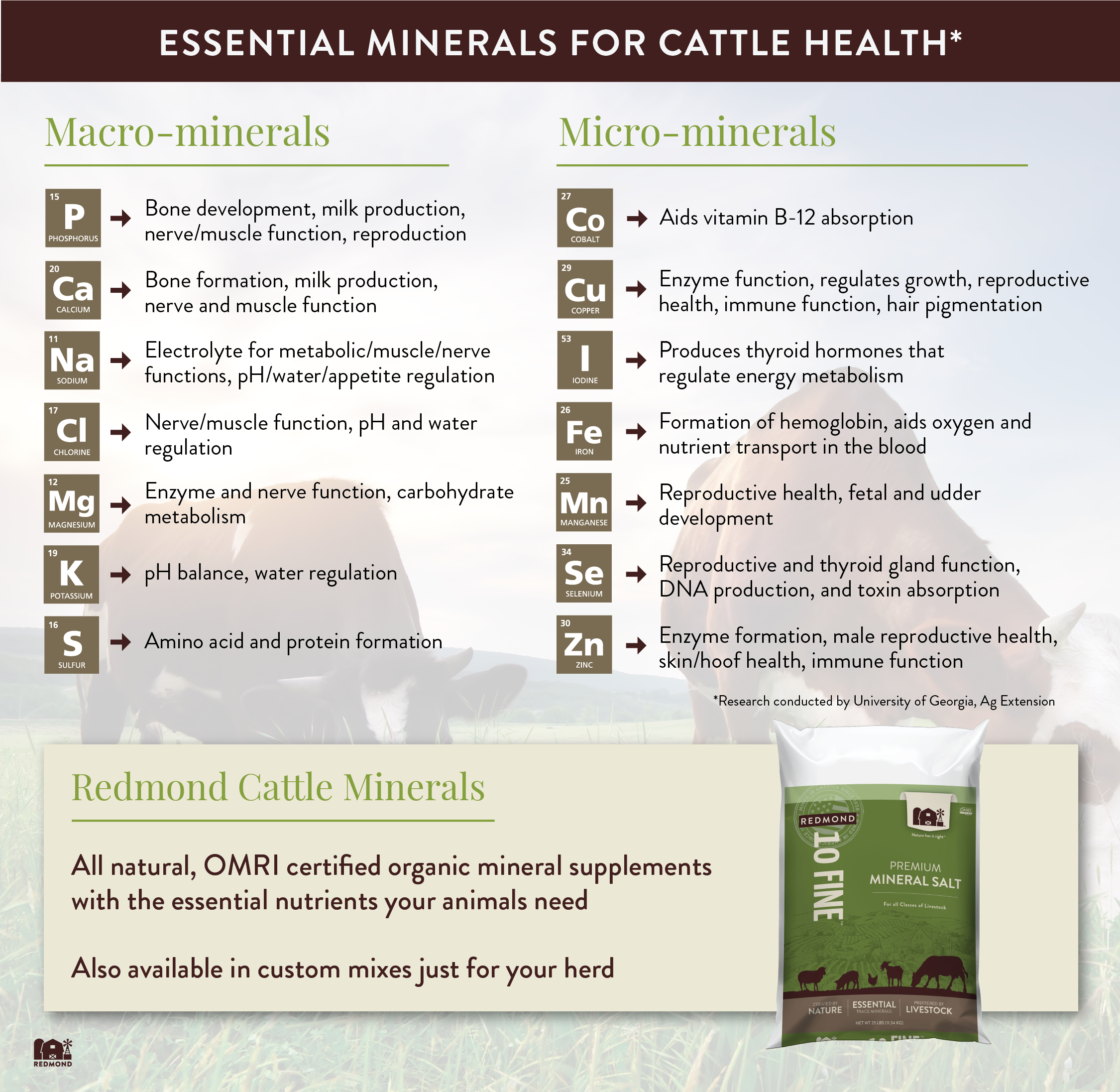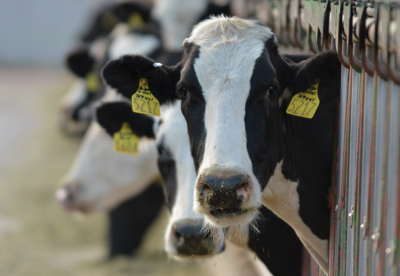The Importance of Iron
Iron may be the most abundant element on Earth (by weight), but it shouldn’t be that abundant in your feed program. Iron is categorized as an essential trace or micro-element, meaning only a small amount is needed...but that small amount is absolutely critical for your herd’s health.
Nutritionally, What Does Iron Do?
Most of the iron within your cattle is stored in their hemoglobin and myoglobin:
- Hemoglobin: protein in red blood cells that transports oxygen from the lungs to tissues throughout the body
- Myoglobin: protein in the muscle cells that stores and delivers oxygen as needed
Iron also helps form important proteins and enzymes that run cells’ power centers in the mitochondria. Since Iron is crucial to bodily functions, let’s look at how to ensure your cattle meet their iron requirements.
How Much Iron Do Cattle Need?
At growing, finishing, gestating, and lactating stages, cattle should be receiving about 50 mg of iron for every kg of feed/forage they eat. That means, if a cow ate around 13 kg a day, they should be intaking about 650 mg of iron daily. According to the University of Georgia Ag Extension:
“Beef cattle require a number of minerals for optimal growth and reproduction. Selecting the correct mineral supplement is important for maintaining healthy animals, and optimal growth and reproduction. Since high-quality forages and/or grains can furnish a large portion of the required minerals, producers should select supplements that will meet animal requirements...Minerals not provided by feed can be easily and inexpensively supplied with a simple mineral supplement.”
Mineral and nutrient content in your forage can vary during the year, so starting a mineral program for your cattle is a great way to fill in the gaps in their diet.
Calculating Iron Intake From A Supplement
Supplement packaging usually lists their iron content in parts per million (ppm) or milligrams per kilogram (mg/kg); these measurements are equivalent to each other.

- Multiply your ppm by .0284 to find out how many mg/oz you are offering your cattle.
How To Recognize Iron Deficiencies
The University of Georgia has also found that “a mineral deficiency in cattle is difficult to diagnose and can silently rob profits from the herd.” Iron deficiency symptoms include:
- Anemia
- Weakened immune response
- Poor growth and weight gain
- Loss of appetite
- Lethargy
If you notice these symptoms in your herd, consult your veterinarian and/or nutritionist for guidance on adjusting their feed/mineral intake.
You should also pay extra attention to blood consuming pests and insects plaguing your herd. A single horn fly can feed around 30 times a day on your cattle, drawing blood and crucial nutrients from your animals. Because iron is essential for the formation of hemoglobin in their blood, frequent bites can cause iron deficiencies and anemia. Click to learn more about using garlic to naturally repel biting pests.
Redmond Cattle Mineral Supplements
Crafted by nature and harvested by farmers, Redmond Mineral Beef and Dairy Supplements nourish your cattle inside and out. Our rich and expansive mineral profile contains over 60 trace minerals that support a wide range of biological functions in your herd. Redmond mineral salt provides 300 ppm of iron for your cattle to help keep their iron levels in a safe and healthy range. We also offer custom mixes that can be calibrated to meet your herd's specific mineral needs.

Do you own horses as well? Redmond Equine has a wide range of beneficial equine mineral supplements and learn more about iron intake for horses.
Give Redmond Minerals a call today at  , both you and your animals will love it!
, both you and your animals will love it!
© 2024 Redmond Minerals Inc.

